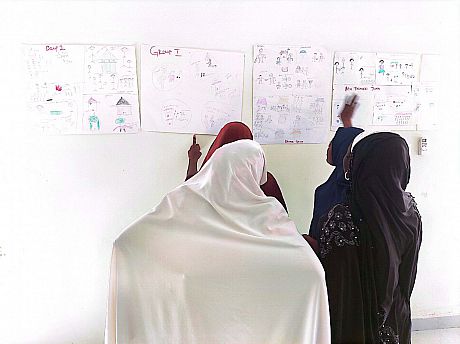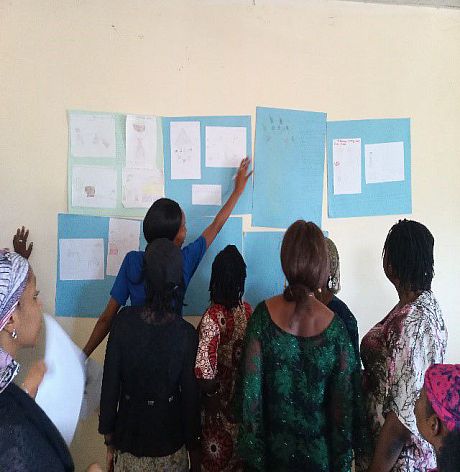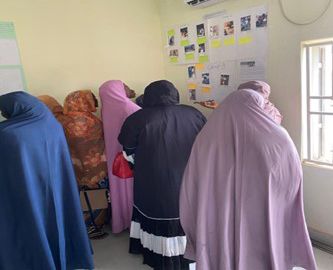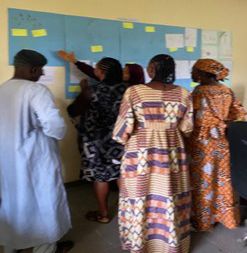Fieldwork: Nigeria
Fieldwork in Nigeria has taken place in the vicinity of Numan and Girei, two rural contexts close to Yola, in Adamawa State.
 This has been led by Safiya Aliyu Chin and Sirente Ishaku Bulus, the Nigerian youth researcher team, and Professor Dauda Moses, Modibbo Adama University of Technology. All are from this region and can speak the local languages, which include Hausa and Fulani.
This has been led by Safiya Aliyu Chin and Sirente Ishaku Bulus, the Nigerian youth researcher team, and Professor Dauda Moses, Modibbo Adama University of Technology. All are from this region and can speak the local languages, which include Hausa and Fulani.
A group of 14 young women in each location have taken part in a series of participatory workshops focusing on what young women’s work involves - and how they combine work with education.
In the first workshop, the co-researcher participants created drawings to show the different kinds of work they do in their communities. These became the basis for a collective discussion of the issues they are facing. One co-researcher participant described her drawing as follows:
 These two [figures] are her children. She is saddled with so many responsibilities, like taking care of the kids, doing the laundry, doing the dishes, fetching water, sweeping, cooking, going to the farm, and running a small business.
These two [figures] are her children. She is saddled with so many responsibilities, like taking care of the kids, doing the laundry, doing the dishes, fetching water, sweeping, cooking, going to the farm, and running a small business.
In a later workshop, the young women took photos and used photo-voice methodologies to represent how they manage the different kinds of work they do with their education. This was followed by a workshop where they made cellphilms [short videos shot on a cellphone or tablet] to highlight the problems they face.
The final workshops involve the co-researcher participants constructing an action brief and a policy poster to take the issues back to their communities. The young women are also taking part in a life history interview, focusing on how they have navigated the intersections of work, family, education and gender through their lives.
As indicated in the action briefs below, it is clear from our research that young women in both rural contexts see education to be important. Their discussions have also indicated strong, shared concerns about the burden of reproductive work (domestic and sexual) that was routinely assumed of them, and how this interfered with their schooling. Our co-researcher participants have also highlighted how they were subject to different forms of gender violence, in school, at work and in the home, and how they had little recourse in the home or in the community to address these.

